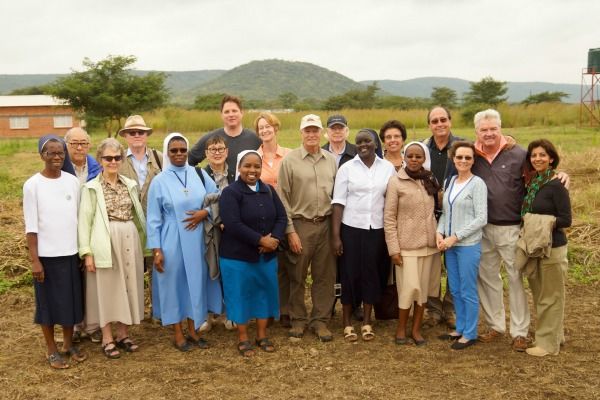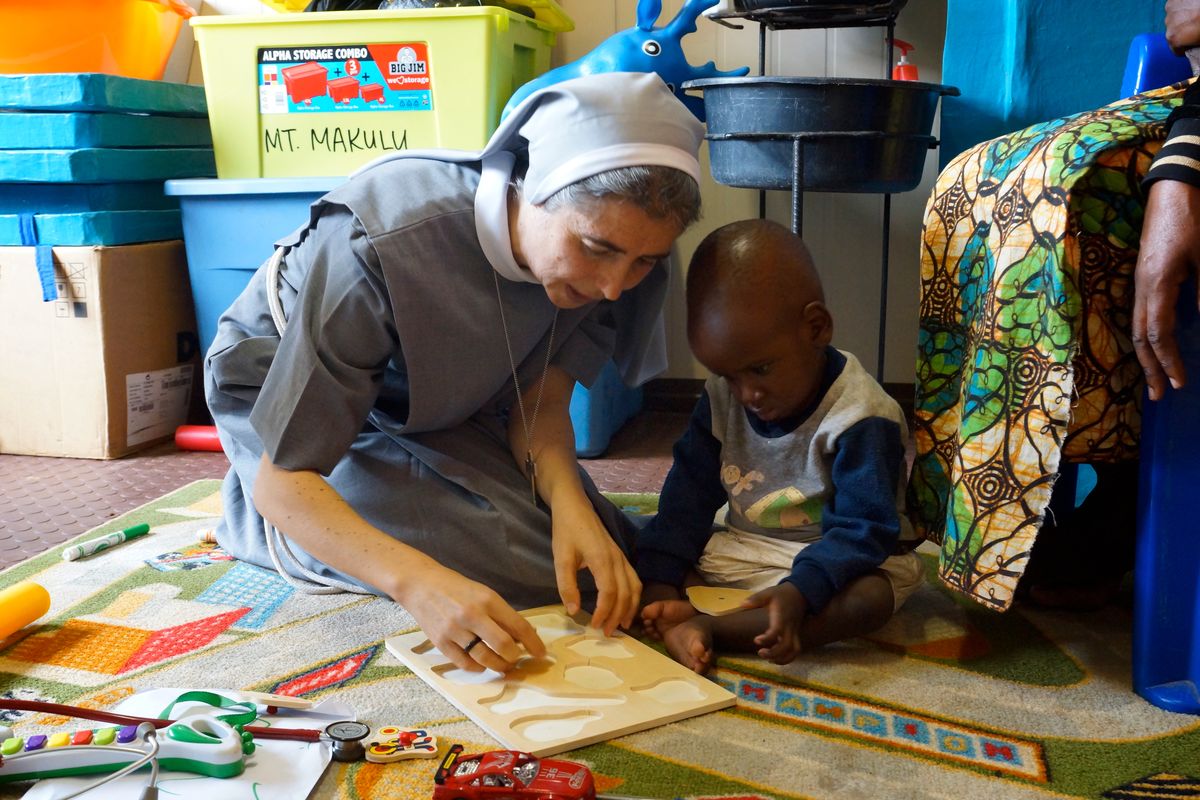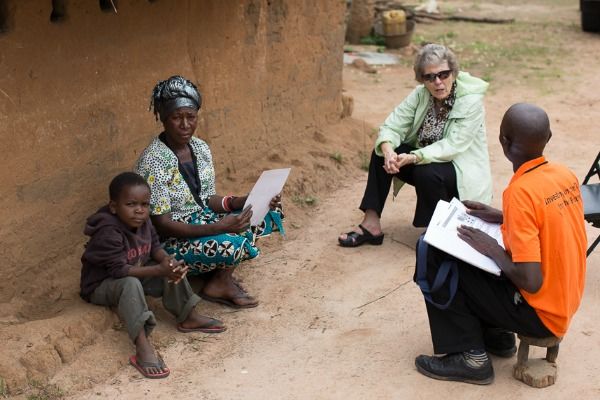Members of our board and staff traveled to Zambia to visit ongoing Hilton Foundation projects carried out by grantee partners in two of our strategic initiatives: the Catholic Sisters Initiative and the Children Affected by HIV and AIDS Initiative.
From April 9 through 19, members of our board and staff traveled to Zambia to visit ongoing Hilton Foundation projects carried out by grantee partners in two of our strategic initiatives: the Catholic Sisters Initiative and the Children Affected by HIV and AIDS Initiative. In addition, Zambia is the site of a new joint program that brings together both initiatives in an effort to train Catholic Sisters to meet the developmental needs of young children affected by HIV, in collaboration with Catholic Relief Services.

Zambia is home to awe-inspiring natural wonders, an abundance of wildlife, and a burgeoning economy. However, poverty is widespread and life expectancy is among the lowest in the world—largely due to the prevalence of HIV and AIDS. This trip was an opportunity for us to meet our partners and beneficiaries and to understand the context in which they work.
Our Children Affected by HIV and AIDS initiative supports capacity building of community-based organizations to meet the developmental needs of young children living in high HIV prevalence settings. Congregations of Catholic Sisters are faith-based community organizations that often work with young children but are seldom given the opportunity for education in early childhood development, so the initiatives align seamlessly. Both strategic initiatives are also linked geographically. The Children Affected by HIV and AIDS initiative has a presence in Zambia due to the pervasiveness of HIV (Zambia is one of five focus countries for this initiative). The Catholic Sisters initiative is also present in Zambia, as part of its partnership with the African Sisters Education Collaborative which educates Catholic sisters throughout the region in leadership and finance.

Our itinerary included site visits in Lusaka, the capital and largest city in Zambia, as well as travel to rural project sites. Our board members were able to observe an HIV counseling and testing session that took place at an Early Child Development (ECD) center operated by the Zambia Anglican Council. Families waited in line to take an HIV test; a testament to the fact that the stigma associated with the virus has lessened over the years. When testing first began, people were often not comfortable standing in line, but it has become a more routine part of the health services that have been built around the ECD center.
Included in our itinerary were home visits with participating families which illuminated many of the challenges they face, such as lack of sufficient income to meet basic needs, the need for mental health services and long distances which women and children must walk to reach early childhood development centers. Our board members were very engaged during these visits and open to learning from community members. During another site visit to a clinic and school run by the Daughters of the Redeemer, we met with women and children living with HIV who are receiving medicines and social support. We were humbled by the fact that these families are dealing with HIV and medical treatment, but are struggling to meet basic needs due to poverty. At the same time, we heard that our grantee partners are working to respond to these needs with improvements in their referral systems and by adding income generation, where feasible. It was clear that the services provided to date have become an integral part of these families’ lives and that despite the challenges, there is hope and resilience in these communities. The delegation was deeply touched by these exchanges.

During our trip, we were in the presence of committed leaders at all levels including Catholic Archbishop Mpundu, who delivered a moving homily at the Zambia Association of Sisters. We reflected on how essential strong leadership is for impact. We also had the opportunity to connect what we learned from partners working on the ground to the national policy environment. We held a symposium in collaboration with the United Nations Development Program, where our Vice President for Programs, Ed Cain, the U.S. Ambassador to Zambia, Zambian government officials, and representatives from civil society spoke about Zambia’s priorities in light of the Sustainable Development Goals (SDGs). It was clear to us that there is opportunity to strengthen collaboration across sectors in order to implement the SDGs once they are adopted in September.
Meeting with community-level leaders was equally important, given that they are the backbone of our programs. At a clinic supported by The Elizabeth Glaser Pediatric AIDS Foundation, we were inspired by the number of volunteers who take the time to help others in their community and we learned that being a volunteer can be an empowering experience. The great respect that the community had for these volunteers was evident and a sign that the community values their work. This respect was also evident in our visit with the Sisters of the Holy Family who live in a rural setting where they support the local community through projects such as a dairy cooperative.
Our visit to Zambia illustrated how two of our strategic initiatives—and the collaboration between them—are advancing successfully thanks to the work of our partners. We also appreciate how important it is to understand the context in which our partners work. The time that our Board members and guests shared with our partners and the beneficiaries of the programs they are implementing yielded valuable insights, which will help inform the evolution of our strategies going forward.